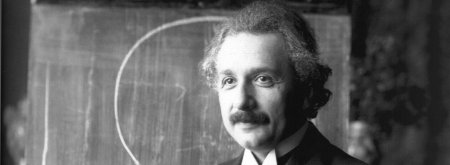Two Good Reasons for Believing in God
This article is the text of Peter May's opening speech at a debate held at the University of Birmingham on 22 November 2007. The debate was considering the motion "This House Believes God is a Delusion." A report on the debate is also available.
This debate strikes at the very heart of what it means to be human. I enjoyed reading Julian Baggini’s Very Short Introduction to Atheism. I want to start with two arguments discussed by Julian.
Firstly, the Cosmological Argument. Julian says this argument is ‘utterly awful, sloppy thinking, doubly flawed and a disgrace to the good name of philosophy’ (p.94). And I fully agree with him. The way he has set it up is self-defeating. However, the argument as put forward by William Lane Craig hangs on two sound premises with an unavoidable deduction.
Premise 1: Whatever begins to exist has a cause. Things do not suddenly pop into existence for no reason. I don’t need to defend that; it is obvious. Whatever begins to exist has a cause.
Premise 2: The universe began to exist. Until the middle of the last century, it was widely believed the universe had always existed. However, since Hubble observed that the universe was expanding and the discovery in the 1960s of background radiation, it has become the overwhelming consensus of modern science that the universe began to exist, and did so with a Big Bang, some 13.7 billion years ago.
Conclusion: if whatever begins to exist has a cause and the universe began to exist, then inevitably, the universe has a cause.
This presents us with a choice. Either there was an uncaused first cause or that the cause itself had a cause, which in turn had a cause, ad infinitum. So we either have an infinite regress of causes or an uncaused first cause to break the chain. There is no logical alternative.
Now I don’t know if you have ever wondered about the idea of an infinite number of anything. William Craig quotes the famous mathematician Hilbert, who considered the problem in terms of a hotel, with an infinite number of rooms. But it was very busy and had an infinite number of guests. So the manager put up a notice outside saying “No Vacancies – Rooms Available”. Craig adds to the absurdity by pointing out that if all guests, say, in odd numbered rooms were to check out on the same day, mathematicians would still tell us that the hotel was full, because it had an infinite number of guests. Furthermore, if the following day the same thing happened and this was repeated an infinite number of times, the hotel would still contain an infinite number of guests. Actual infinite numbers do not exist. This applies to an infinite regress of causes. Somewhere you have to face an uncaused first cause.
Now science implies several things about this uncaused first cause. As Stephen Hawking and others have shown, not only matter but even time and space themselves came into existence with the big bang. The implication then from science is that such an uncaused first cause would be immaterial, non-spatial, timeless and therefore changeless, and enormously powerful. Furthermore, the exquisite fine-tuning of the universe, whose unchanged physical laws and constants were set at the first moments of the first second of the big bang, imply that such a cause was also unbelievably intelligent.
But there is something else. This cause showed personal agency in deciding to act deliberately and freely (being uncaused) to bring about creation. So we are faced with an uncaused, immaterial, non-spatial, timeless, changeless, powerful and intelligent being, who acted freely and deliberately as a personal agent in Creation. Now who could that be…?
The Bible states emphatically, “In the beginning, God…”
Secondly, the Moral Argument. This is often misunderstood. If you watch the DVD of Craig’s recent debate in London, neither Lewis Wolpert nor John Humphrys could understand it. We are NOT saying that atheists cannot devise a moral code, or live better lives than Christians. On the contrary, Christians are moral failures by definition. You cannot become a Christian without realising that.
No, the issue is this: that in an atheistic framework, you have no objective basis to call anything ultimately good or evil. Atheist morality is like the rules of a local dining club, where men must wear jackets and women must wear skirts. There is nothing objectively wrong in eating without a jacket. Another club down the road might relax the rule about jackets and allow women to wear trousers. These are home made, human rules for the mutual benefit of members at a particular time, place, and culture. They are open for review at any point, depending on local demand.
Now atheists may argue that God must have chosen an equally random set of rules. But that is not so. Christians understand morality to flow directly from God’s essential being. God is a holy God – which means that he is good, he is love, he is just, he is merciful, he is faithful. What we call righteousness flows from these essential attributes of his character. Without that objective basis for justice and goodness, morality would be just a human contract. There would be no ultimate justice and nothing would be objectively wrong in itself.
But our whole system of law and ethics assumes there is an objective reality of good and evil: that it was objectively wrong to kidnap 4 year old Madeleine McCann; that it was objectively wrong to rape and slit the throat of Meredith, the poor English student in Italy; that 9/11 was a profound moral evil, lacking all mercy, justice and compassion. Christians believe such things are ultimately wrong because they defy the very character of the God who made us.
So the argument can be framed (following Craig):
Premise 1: If God does not exist, objective moral values do not exist.
Premise 2: But evil does exist. Rape, murder, child abuse are objectively wrong.
Conclusion: If that is true, then God exists.
Julian writes that the problem of evil demands an answer. Our answer is that the atheist hasn’t got any grounds for believing in the objective reality of evil. What you are being asked to decide tonight is whether evil actually exists. For if nothing is evil, then everything is permitted.
Finally, I want just to pose a question: if such an uncaused, first cause exists, how could we possibly know him? C.S. Lewis thought about this problem in literary terms. He asked himself how Hamlet could meet Shakespeare, his creator. And he concluded that no way could Hamlet bring about such a meeting. But then it dawned on him, that they could have met and known each other, if Shakespeare had taken the initiative and written himself into the drama as one of its characters. Then Hamlet could have met his creator.
And that is what Christians believe that God has done. The entirely good and holy, uncaused, first cause has taken the initiative and entered our world and meets us uniquely in Christ – God made flesh and dwelling among us – that we might know him, love him and live our lives in the ultimate of fulfilling and transforming relationships, that of knowing God himself.
© 2007 Peter May



